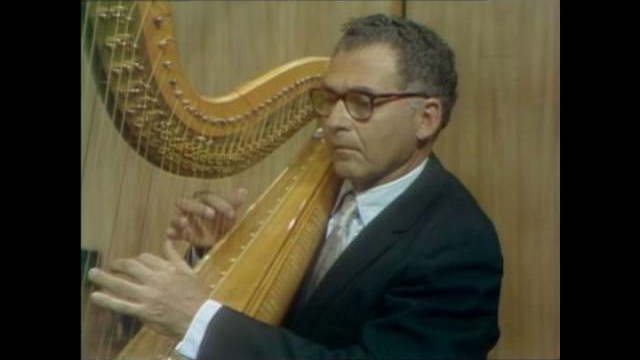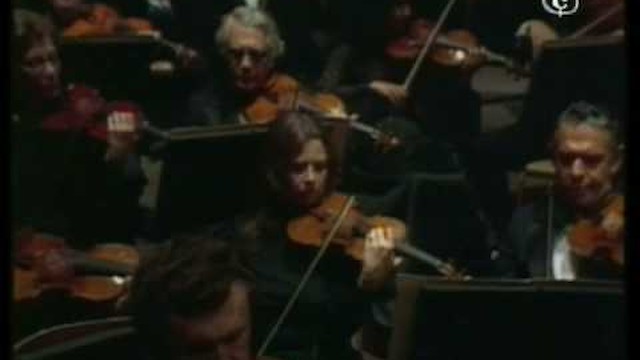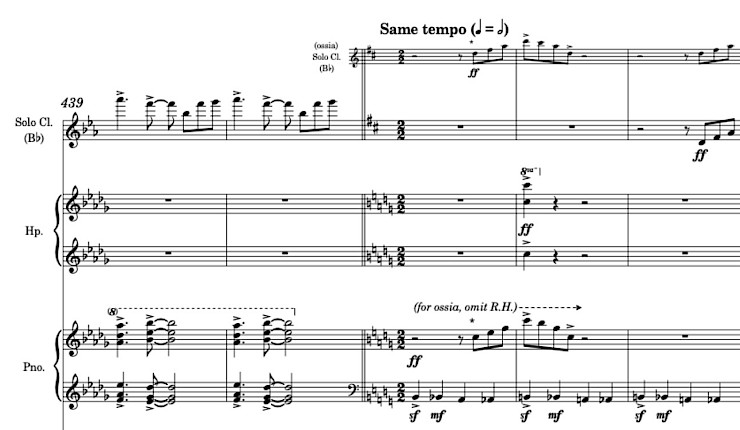The first of a two-part examination of recent editions of Copland's music, how they came to be, and why they matter.
Read more- Title
- Clarinet Concerto
- For
- clarinet and orchestra
- Alternate Title
- Concerto for Clarinet and String Orchestra (with Harp and Piano) (Alternate/Synonymous)
- Year Composed
- 1947–48
- Scoring
- harp-pft-strings
- ARCO Number(s)
- 62
- Category
- Orchestral
- Duration
- 18'
- Movements
- 1. Slowly and expressively
- – Cadenza
- 2. Rather fast
- Premiere
- World: New York, November 6th, 1950 (Benny Goodman, NBC Symphony Orchestra, cond. Fritz Reiner)
- Commission Info
- Benny Goodman
- Dedication
- to Benny Goodman
- Publisher
- Boosey & Hawkes
- Publishing Status
- Published
Buying Options
Boosey & HawkesExternal Links
The renowned jazz clarinetist Benny Goodman asked Copland to compose a work for him. The result was a two-movement concerto: the first section is one of Copland's most lyrical and melodious creations; the second is in an all-out jazzy style replete with a glissando or jazz "smear" at the end. The movements are connected by a cadenza for the soloist. Benny Goodman said in an interview, "I always felt good about that commission and about playing the Concerto with Aaron conducting." Since then, many of the foremost clarinetists worldwide have performed the piece.
- Author
- Vivian Perlis
- Year
- 1998
"The same or similar music" to In Evening Air had earlier appeared in the 1944 piano work Midday Thoughts, in the documentary film score The Cummington Story, and in the Clarinet Concerto, writes biographer Howard Pollack (Aaron Copland: The Life and Work of an Uncommon Man, p.515). The piece shares its title with a 1964 poem by Theodore Roethke, the last two lines of which are printed at the end of the score (Pollack p.410).
- Year
- 2018
A new edition of this work, edited by Philip Rothman and Vivian Perlis, is now available from Boosey and Hawkes. In addition to the new engraving, original ossia lines have been restored from the original manuscript, providing the performer with the option to perform the concerto as originally conceived by Copland or with the adjustments made for Benny Goodman.







